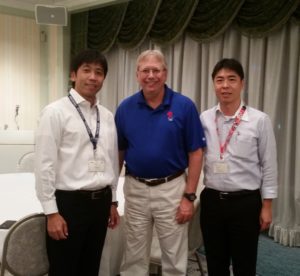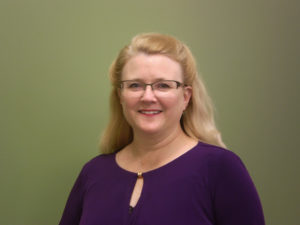President’s Message
An FSCI update from Keith S. Frangiamore, President
We Have Some Exciting News!
Fire Safety Consultants, Inc. (FSCI) has been acquired by Paramedic Services of Illinois (PSI) as of September 16, 2017. FSCI will continue to operate as an independent division, and our working principles will remain the same as part of the PSI group of companies.
The acquisition by PSI completes a journey for Jim and Judy Schifiliti who founded the Fire Safety Consultants, Inc. in 1983. As you know, Jim retired in 2013, and Judy, our financial officer, continued to work full time. Judy recently also expressed her desire to retire. They were very excited when PSI offered to acquire FSCI since both are family-owned and operated businesses with similar values and cultures.
FSCI led by the current management team, will continue to provide the highest quality third party plan reviews, consulting services, and seminars.
What Changes Will Our Clients See?
Our clients will see no immediate change, as our exceptional staff will continue to provide the same great services. At FSCI, we are committed to continually improving current services and look forward to offering new services in the future.
What Will Change?
What will change is the amount of resources available to continue the rapid growth at FSCI through PSI ownership. Our new relationship will help us increase the quality and promptness of all our services.
Please feel free to call either of our offices if you have any questions about this exciting change.
As always, thank you for being part of the FSCI family as we look forward to the future!
Life on the Road and Safe Buldings
As one of the lead seminar instructors for Fire Safety Consultants Inc.(FSCI) I frequently travel to association meetings, consulting projects, and training seminars. Most of my trips require an overnight stay at a hotel.
This article is being written from my hotel room in Tokyo, Japan where I am teaching for a group of engineers from Japan and other countries in Southeast Asia. The seminar is being delivered by FSCI, on behalf of the National Fire Protection Association (NFPA). The seminar on NFPA 72, National Fire Alarm and Signaling Code is designed to educate engineers who are more often being asked to design fire alarm systems in accordance with the requirements of NFPA 72.
As a fire and life safety professional, I conduct an interior walk-through of my hotel when I arrive. Here’s what I observed:
- Fully sprinklered – very good.
- Smoke detection in the public corridors and my room – very good.
- Two enclosed, marked exits from my floor, one across from my room – very good.
- Portable fire extinguishers available – good.
- Notification appliances, not found – not good.
- Handrails in the stairway, not found – not so good.
- Elevator Phase I recall not apparent – I’ll use the stairs if I think there is a fire.
Next, I will inspect the hotel’s exterior. The exterior of the building…wait, why am I checking this? While reading the September/October edition of NFPA’s Journal on my 13-hour flight from Chicago to Tokyo, I was reminded of the many recent fires that burned on the outside of buildings before affecting occupants inside of buildings.
Do you remember the Grenfell Tower incident in London that resulted in the death of at least 80 persons this year? Combustible exterior wall covering, applied during a 2015-2016 renovation is blamed with rapidly spreading fire vertically up the outside of the building and into the building on most floors. Would the result of the fourth floor refrigerator fire in the building have resulted in a serious loss of life had the Grenfell Tower building met the model ICC and NFPA codes in effect in the United States? Exterior wall coverings subject to standards such as NFPA 285, Fire Test Method for Evaluation of Fire Propagation Characteristics of Exterior Non-Load-Bearing Wall Assemblies Containing Combustible Components, have reduced, but not have eliminated, the likelihood of a Grenfell Tower fire in the United States. Fires have occurred on the exterior of buildings in the United States, but their outcomes have not been as tragic.
Additional factors in the Grenfell Tower fire that contributed to the magnitude of the fire and the resulting deaths and injuries, were a lack of fire sprinkler and alarm systems, as well as the absence of a second, protected stairway. A fire sprinkler system could have kept the exterior fire from entering the building. A more likely scenario is that the fire sprinkler system would have suppressed the refrigerator fire in the kitchen of origin with no fire spread to the building’s exterior. A working fire alarm system could have alerted all residents of the pending emergency. At a minimum, those residents in a pre-determined evacuation zone, would have been advised of the need to begin building evacuation. And, having at least two, protected stairways could have provided an option for residents had one become unusable because of the fire’s location.
Non-combustible building exteriors, working sprinkler and fire alarm systems with Emergency Voice Alarm Communication, and sufficient means of egress are just a part of the requirements in the model codes found in the United States. When incorporated in new buildings, the chances of another Grenfell Tower fire are significantly reduced.
Building and fire inspec tors are on the front lines of making sure that adopted model codes and standards are enforced in all buildings within a city, village, or state. This includes fighting to make sure that key elements of model codes are not deleted from the codes and standards during the adoption process because of perceived costs or hardships to builders and owners.
tors are on the front lines of making sure that adopted model codes and standards are enforced in all buildings within a city, village, or state. This includes fighting to make sure that key elements of model codes are not deleted from the codes and standards during the adoption process because of perceived costs or hardships to builders and owners.
All of us in this profession know that applying and enforcing codes and standards leads, at times, to unhappy business owners, residents, and elected officials. The options available to code officials are to enforce the codes despite the “political” repercussions that might occur; or, not to enforce codes and potentially expose unsuspecting occupants to unsafe buildings. Fortunately, in my career I have seen that most code officials take the former option which makes us all safer.
By the way, a close examination found that the exterior of my hotel was non-combustible construction so I’m sleeping pretty well in this hotel.
Warren E. Olsen, CFPS, CBO
Vice President Building and Life Safety
Employee Spotlight
Hannah Kinney
Hannah is from Tulsa, Oklahoma and joined FSCI this past June as a Fire Protection Consultant. Hannah was previously employed by McElroy Manufacturing Inc. and has a background in mechanical drafting, which gave her an advantage when learning how to review fire protection drawings. She also has vast knowledge in the area of graphic and website design.
When Hannah has some free time she enjoys watching old shows and movies, especially from the 1930s and 50s. She also enjoys baking when she has a little extra time. Hannah also finds it rewarding to volunteer for her church by assisting them in building new locations. Her volunteer work includes laying concrete, cleaning up, installing drywall, and painting. Hannah has also used her skills to help people in poverty and teach people about the bible.
Phyllis Krage
Phyllis is a Field Services Inspection Coordinator and she started with FSCI in June of this year. She has been scheduling our inspectors and continually learning about all of the services that Fire Safety Consultant Inc. offers. Phyllis has worked in customer service for such companies as Marriott Hotels & Resorts and more recently has worked as an Administrative Assistant mid-management. Throug h these experiences, Phyllis has learned to prioritize her work and to solve problems by being flexible while working towards a solution.
h these experiences, Phyllis has learned to prioritize her work and to solve problems by being flexible while working towards a solution.
Outside of work, Phyllis enjoys spending time with her grandkids and quilting for those with a less critical eye. She also enjoys hanging out with her husband, travelling and reading almost 100 books a year!
Little Known Facts
NFPA 13 – 2013 Edition
A question that our office gets from both clients and contractors is, “if by changing the use group of a building or space, do the sprinklers need to be replaced?” This is not an easy answer, it all depends on the new and old use groups and the existing sprinklers installed. As an example if a current M use group with existing standard response sprinklers is being changed to a B use group. NFPA 13 section 8.3.3.1 requires sprinklers in all light hazard areas to be quick response, but also in section 8.3.3.1 (4) and A.8.3.3.1 has an exception to allow the continued use of standard response sprinkler if no work is being done to the sprinkler system.
Another example that happens often is when an A or B use group is being added to or replacing an existing F or S use group with specific application sprinkler like ESFR or CMSA type sprinklers. This was debated in the past because these types of sprinkler are not specifically listed for Light or Ordinary Hazard occupancies. Sections 8.4.6.6 and 8.4.7.4.1 of the 2013 edition of NFPA 13 now spell out that ESFR and CMSA sprinklers designed to meet any design criteria in Chapters 12 through 20 shall be permitted to protect Light and Ordinary hazard occupancies.
Matt Davis – Senior Fire Protection Consultant
2015 IBC – Changes to the Requirements for R-4 Uses
Residential Group, R-4 facilities, provide housing for five (5) to sixteen (16) residents (excluding staff) who live in a supervised environment and receive custodial care. Section 310.6 has received two, new conditions which are hinged on the building resident’s ability to evacuate the building during an emergency situation. The newly added conditions are identical to the conditions included in the requirements for I-1 use groups which would apply should the total number of residents exceed the 16 resident limit of the R-4 use group.
In a Condition 1 facility, residents receiving custodial care are capable of responding to an emergency situation and completing a building evacuation without assistance from staff or others. In a Condition 2 facility, residents require limited verbal or physical assistance to evacuate from a building during an emergency situation.
During the plan review process for an R-4 and all other use groups, it is important for the plan reviewer to have a clear understanding of the type of operation and the type of occupants who may be occupying a building or structure when determining the correct use group and condition type.
Totie Leonardo, Senior Plan Reviewer
2016 NFPA 13 – Cloud Ceilings
In past editions, NFPA was silent on the requirements for sprinklers above and below cloud ceilings. New to the 2016 edition of NFPA 13, Standard for the Installation of Sprinkler Systems, is Section 8.15.24 which defines the sprinkler requirements for ceiling types. Cloud ceilings are defined in Section 3.3.5.1. The new section permits the omission of sprinkler heads above cloud ceilings where certain conditions are met:
- The openings around the cloud and the maximum sprinkler protection area must meet the requirements of Table 8.15.24.1
- There are additional requirements listed in section 8.15.24.2 based on the sprinkler types, the maximum cloud ceiling height, and the ceiling construction.
- For an irregular shaped ceiling cloud, the standard defines the minimum dimensions and the allowable gaps between adjacent clouds or walls.
Appendix A, Figures A.8.15.24.1 and A.8.15.24.2.5, are helpful in explaining allowable gaps and minimum cloud widths.
George Michehl, Plan Review Associate
Seminars
Stay up to date on the latest Fire, Building and Life Safety code changes and equipment by attending one of our seminars. FSCI is teaching seminars throughout the United States, led by our experienced staff of Matt Davis, Keith Frangiamore, Brent Gooden, George Michehl & Warren Olsen. Whether you are a Contractor, Architect, Technician, Engineer or an Authority Having Jurisdiction, each seminar is full of practical insights and first-hand experiences to help you comply with applicable codes and standards. FSCI can also provide custom seminars at your location. Be sure to check out our schedule of upcoming seminars on our website. Contact us to learn more by emailing [email protected] or by calling our office at (847) 697-1300.

